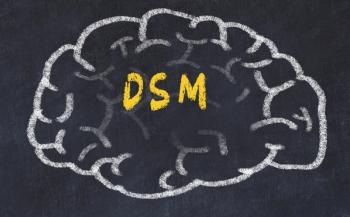
Culturally Sensitive Adherence Scale Shows Promise
First of its kind culturally sensitive adherence scale factors in CVD risk factors to find ways to best support patients.
Recognizing the need to further understand nonadherence in patients with serious mental illness (SMI) like major depressive disorder (MDD), researchers at the University of Puerto Rico, San Juan, and Carlos Albizu University, San Juan, developed the Ralat Adherence
Scale (RAS-24). The culturally sensitive scale designed for patients from Puerto Rico with risk factors for
Sandra I. Ralat, PhD, José Rodríguez-Gómez, MD, PhD, originally identified 147 items via a literature search and the lead authors’ previous research to develop the scale. After reviewing the list for meaning, content, clarity, and relevance, a panel of 9 experts (3 psychiatrists, 1 cardiologist, 2 clinical psychologists, and 3 clinical social workers) helped hone the scale to 40 items.
For validation, the scale was administered to 160 patients from San Juan and other cities in
Almost one-quarter of individuals had MDD (22%); 32% had bipolar disorder and 46% and schizoaffective disorder. The majority of participants were female (63%), and mean age was 45.5 years. The majority of participants were from an urban area (59%) and were single (66.3%).
Ralat and Rodríguez-Gómez found only 10% of participants demonstrated positive adherence behaviors. Individuals with
The investigators also looked at the differences between patient self-perception of adherence as compared to the scale results. Interestingly, only 21% of the participants said they had difficulties taking their medications, yet the scale revealed 90% had nonadherence behavior. This finding further emphasizes the need to truly understand adherence issues in patients.
Although the 40-item scale had high internal consistency (Cronbach’s alpha = 0.812) making it a very good index, Ralat and Rodríguez-Gómez further reduced the scale to include 24 items, making it more flexible for in-practice implementation. The investigators chose items that correlated between 0.509 and 0.718, and avoided values that were too high due to concern over multicollinearity and singularity. The final version of the scale had a Cronbach’s alpha of 0.900.
The investigators noted the limitations of this research, as participants were not randomly recruited to be representative of all Puerto Rican patients with SMI nor were all SMIs (eg, schizophrenia) included. Additionally, they did not employ a re-test strategy.
“Effectively identifying nonadherence behaviors is the first step in developing and, subsequently, promoting, psychosocial interventions that can enhance treatment adherence,” Ralat and Rodríguez-Gómez concluded. “The RAS-24 is a self-administered instrument with very good psychometric properties; it has already yielded important information about nonadherence–adherence behaviors.”
The work was supported by the National Institute on Minority Health and Health Disparities (award numbers R25MD007607 and U54MD007600) and the National Institute of General Medical Sciences (NIGMS) of the National Institutes of Health (award number U54GM133807).
References
1. Ralat SI, Rodríguez-Gómez J. The RAS-24: Development and validation of an adherence-to-medication scale for severe mental illness patients. J Clin Transl Sci. 2023;7(1):e94.
Let us hear from you! Share comments with your colleagues by emailing PTEditor@mmhgroup.com. Comments may be shared online pending review and editing for style.
Newsletter
Receive trusted psychiatric news, expert analysis, and clinical insights — subscribe today to support your practice and your patients.







